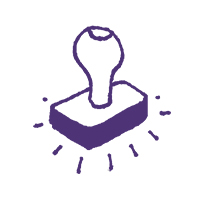Required Training for this Role
This is a new role currently being piloted across England. While training, you’ll typically spend one day a week studying at university (45 days in total) with almost all of this being remote learning. You'll spend the remainder of your time (four days a week) working in or undertaking specific training tasks in your placement setting. You'll spend time in both an inpatient and intensive home treatment team as part of your placements. You will have regular meetings with your supervisor to support you to deliver high quality, evidence-based interventions. You will also have contact with other trainee youth intensive psychological practitioners through your university and on your placements. You will also be required to undertake a minimum of 40 hours of clinical supervision, of which at least 20 hours should be case management supervision and at least 20 hours clinical skills supervision.
Once qualified, you’ll spend at least 20 hours a week seeing patients and their parents and carers either in an inpatient setting, clinic, in their own homes, or via video link or telephone. You will also develop relationships across the children and young people’s mental health and care system to help co-ordinate the most appropriate care for your patients.











